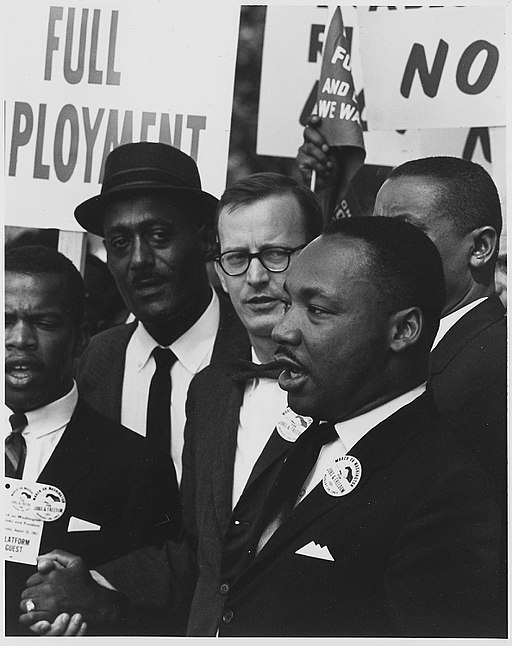In 1858, Abraham Lincoln, then a candidate for the office of US Senator, quoting the Bible, gave what became known as the House Divided speech:
“ A house divided against itself shall not stand.”
I believe this government cannot endure, permanently half slave and half free.
I do not expect the Union to be dissolved — I do not expect the house to fall — but I do expect it will cease to be divided.
It will become all one thing or all the other.
Either the opponents of slavery, will arrest the further spread of it, and place it where the public mind shall rest in the belief that it is in the course of ultimate extinction; or its advocates will push it forward, till it shall become alike lawful in all the States, old as well as new — North as well as South.
Martin Luther King Jr. speaking at Stanford University April 14, 1967 in a speech entitled “The Other America,” said:
And I use this subject because there are literally two Americas. One America is beautiful for situation. And, in a sense, this America is overflowing with the milk of prosperity and the honey of opportunity. This America is the habitat of millions of people who have food and material necessities for their bodies; and culture and education for their minds; and freedom and human dignity for their spirits. In this America, millions of people experience every day the opportunity of having life, liberty, and the pursuit of happiness in all of their dimensions. And in this America millions of young people grow up in the sunlight of opportunity.
But tragically and unfortunately, there is another America. This other America has a daily ugliness about it that constantly transforms the ebulliency of hope into the fatigue of despair. In this America millions of work-starved men walk the streets daily in search for jobs that do not exist. In this America millions of people find themselves living in rat-infested, vermin-filled slums. In this America people are poor by the millions. They find themselves perishing on a lonely island of poverty in the midst of a vast ocean of material prosperity.
In a sense, the greatest tragedy of this other America is what it does to little children. Little children in this other America are forced to grow up with clouds of inferiority forming every day in their little mental skies. As we look at this other America, we see it as an arena of blasted hopes and shattered dreams. Many people of various backgrounds live in this other America. Some are Mexican Americans, some are Puerto Ricans, some are Indians, some happen to be from other groups. Millions of them are Appalachian whites. But probably the largest group in this other America in proportion to its size in the Population is the American Negro…
In 1863 the Negro was freed from the bondage of physical slavery. But at the same time, the nation refused to give him land to make that freedom meaningful. And at that same period America was giving millions of acres of land in the West and the Midwest, which meant that America was willing to undergird its white peasants from Europe with an economic floor that would make it possible to grow and develop, and refused to give that economic floor to its black peasants, so to speak.
In the last paragraph, King is referring to the Homestead Act of 1862 in which white citizens could claim up to 160 acres of government land for a minimal fee as long at they cultivated the land. By contrast, their Black counterparts were free…but given nothing. The promise of 40 acres and a mule was rescinded and they were left to make it on their own.
So tell me, can we be surprised at the disparities that we have today? Can we be surprised that there is more and more a call for Reparations?
Anne C. Bailey, author of The Weeping Time: Memory and the Largest Slave Auction in American History
Photo courtesy of NARA / CC0; Martin Luther King Jr. and Rep. John Lewis. RIP Rep. Lewis.



 Find Anne C. Bailey's non-fiction book :
Find Anne C. Bailey's non-fiction book : 



